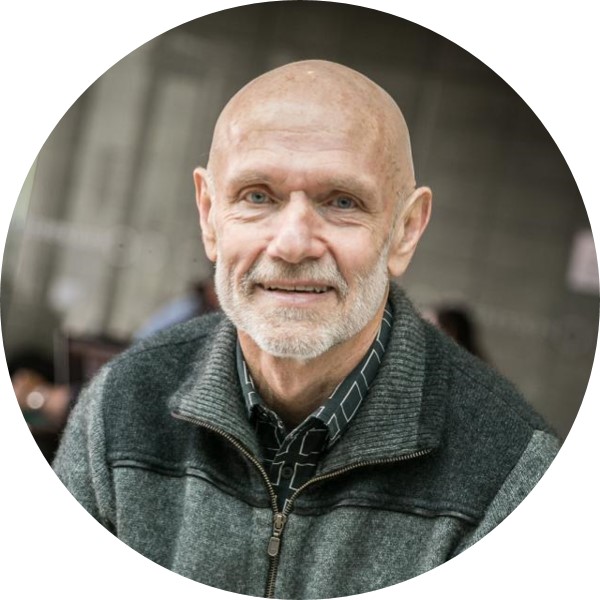This webinar was presented by Dr Neville Robertson and Rachel Smith on 9 July 2020.
 Neville Robertson (BA MSoSc DipPsych(Community), PhD) is a Pākehā of Scottish descent and a registered community psychologist. He is currently in private practice in Kirikiriroa (Hamilton), having “retired” from the University of Waikato (although he still retains “Associate” status in the Māori and Psychology Research Unit). Over 35 years, he has undertaken various roles in the family violence sector as a facilitator of stopping violence programmes, trainer, advisor, researcher and evaluator. He has been much influenced by feminist scholarship and owes a huge debt to both Māori and non-Māori women colleagues and to the many women he, his colleagues and/or his students have interviewed over the years.
Neville Robertson (BA MSoSc DipPsych(Community), PhD) is a Pākehā of Scottish descent and a registered community psychologist. He is currently in private practice in Kirikiriroa (Hamilton), having “retired” from the University of Waikato (although he still retains “Associate” status in the Māori and Psychology Research Unit). Over 35 years, he has undertaken various roles in the family violence sector as a facilitator of stopping violence programmes, trainer, advisor, researcher and evaluator. He has been much influenced by feminist scholarship and owes a huge debt to both Māori and non-Māori women colleagues and to the many women he, his colleagues and/or his students have interviewed over the years.
Neville says: "When I first got involved in the field, I thought I would see the end of domestic violence in my lifetime. I now find myself contemplating the likelihood that my granddaughters may face challenges not unlike those faced by my daughter, my sisters and my mother. This is not to deny some significant reforms which have taken place. However, in this talk, I argue that some of these reforms have produced mixed results. By placing these reforms in a historical context (beginning with pre-colonisation Aotearoa), it is possible to chart the slow and uneven progress towards a world in which women can expect to live lives unconstrained by violence, abuse and tactics of coercive control. This analysis also allows us to identify ways in which well-meaning reforms aimed at protection have in fact resulted in further oppression for women. I argue that unless we prioritise women’s autonomy, we will, at best, achieve only limited advances for women."
 Rachel Smith has worked in the family violence sector across government, health and the voluntary sector in the UK and Aotearoa New Zealand. She has a Masters of Science in Human Rights from the London School of Economics and Political Science. Rachel spent seven years working for the Family Violence Death Review Committee. This experience gave her a privileged insight into the limitations of New Zealand's systemic response to family violence. She is currently Senior Manager of Professional Practice at Shine.
Rachel Smith has worked in the family violence sector across government, health and the voluntary sector in the UK and Aotearoa New Zealand. She has a Masters of Science in Human Rights from the London School of Economics and Political Science. Rachel spent seven years working for the Family Violence Death Review Committee. This experience gave her a privileged insight into the limitations of New Zealand's systemic response to family violence. She is currently Senior Manager of Professional Practice at Shine.
Rachel says: "Legislative reform in Aotearoa New Zealand has been focused on securing the physical safety of women and children. The uncomfortable reality is that many of our current safety responses to men’s violence against their female partners and their children are a serious mismatch for the ongoing transgressions of their person that victims experience.
Intimate partner violence is more than physical assaults - it is about the accumulation of multiple forms of abuse that take effect over time, designed to stop women from being self-determining. It is about a conscious shrinking of their world, their interconnectedness, and the space in which they can truly be themselves without experiencing harm from people, services or systems.
Our challenge is not just to protect women from further violence - a harm reduction approach - but to focus on women’s freedom - to expand their ‘space for action.’ Collectively we need take steps to restore the liberty and self-determination which has been transgressed not only by individual men; but frequently by inadequate organisational responses and the embeddedness of structural violence in their lives.
What would change if we collectively pivoted - restoring women’s ability to be self-determining as the focus of our systemic response to IPV? Can we expect societal transformation without equity and self-determination as our guiding principles?"
Related resources
Neville Robertson's talk
![]() Family Violence Death Review Committee - reports and papers
Family Violence Death Review Committee - reports and papers
Various dates
![]() Whānau violence: A Māori conceptual framework
Whānau violence: A Māori conceptual framework
Report to Hon Tariana Turia from the Second Māori Taskforce on Whānau Violence. Kruger, T., Pitman, M., Pitama, D., McDonald, T., Mariu, D., Pomare, A., ... Lawson-Te Aho, K. (2002). Wellington: Te Puni Kokiri.
Rachel Smith's talk
![]() Only a global movement can eradicate racism
Only a global movement can eradicate racism
Moana Maniapoto, eTangata, 5 July 2020
Edited transcript of interview with professor Angela Davis on Te Ao with Moana, Māori TV
![]() Finding the costs of freedom: How women and children rebuild their lives after domestic violence
Finding the costs of freedom: How women and children rebuild their lives after domestic violence
Kelly, L., Sharp, N., & Klein, R. (2019). London: Child and Woman Abuse Studies Unit (London Metropolitan University) and Solace Women’s Aid.
![]() E Tū Wāhine, E Tū Whānau: Wāhine Māori keeping safe in unsafe relationships
E Tū Wāhine, E Tū Whānau: Wāhine Māori keeping safe in unsafe relationships
Wilson, D., Mikahere-Hall, A., Sherwood, J., Cootes, K., Jackson, D. (2019). Auckland: Taupua Waiora Māori Research Centre.
![]() Resisting and transforming rape culture: An activist stance for therapeutic work with men who have used violence
Resisting and transforming rape culture: An activist stance for therapeutic work with men who have used violence
Reynolds, V., (2014). The No To Violence Journal, Spring: 29-49.
See more articles by Vicki Reynolds
![]() Tallawah: A briefing paper on black and ‘minority ethnic’ women and girls organising to end violence against us
Tallawah: A briefing paper on black and ‘minority ethnic’ women and girls organising to end violence against us
Larasi, M., & Jones, D. (2017). London: Imkaan.
![]() ‘Feeling ‘like a minority . . . a pathology’: Interpreting race from research with African and Caribbean women on violence and abuse’
‘Feeling ‘like a minority . . . a pathology’: Interpreting race from research with African and Caribbean women on violence and abuse’
Kanyeredzi, A. (2018). Qualitative Research, 19(4): 399-417.
![]() Report of the Special Rapporteur on the right of everyone to the enjoyment of the highest attainable standard of physical and mental health
Report of the Special Rapporteur on the right of everyone to the enjoyment of the highest attainable standard of physical and mental health
(A/HRC/35/21) 2017
![]() Self care to communities of care
Self care to communities of care
Heath, T. (2019). TEDxMSUDenver.
![]() A Black feminist reflection on the antiviolence movement
A Black feminist reflection on the antiviolence movement
Richie, B.E. (2008). In N. J. Sokoloff & C. Pratt (Eds.) Domestic violence at the margins: Readings on race, class, gender, and culture (pp. 50-55). Piscataway, NJ, US: Rutgers University Press. (Available for loan from the NZFVC library)
Janet Fanslow (host)
![]() The civic origins of progressive policy change: Combating violence against women in global perspective, 1975–2005
The civic origins of progressive policy change: Combating violence against women in global perspective, 1975–2005
Htun, M. & Weldon, S.L. (2012). American Political Science Review, 106(3): 548-569.


